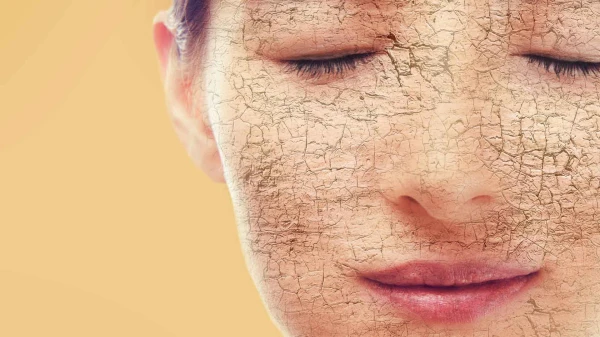
Skin peeling is not just a cosmetic defect but a SOS signal that can be overcome with proper care. Here is a complete action guide.
Imagine: you wake up in the morning, wash your face, apply your usual skincare, and your skin still treacherously peels. In such moments, you want either to "drown" it in a thick layer of greasy cream or quickly remove the flakes with a scrub. But neither of these is the best path to smoothness and radiance. Peeling skin on the face, body, and hands is primarily a SOS signal from the body, not just an aesthetic nuisance. To restore comfort and health, it is important to find the cause and properly structure your skincare, rather than trying to "cover up" the problem.
The Cause Is Not on the Surface
There are indeed many reasons why skin starts to peel throughout the year. Among them are various diseases: dermatitis, psoriasis, fungal infections. Weather conditions have a significant impact: cold, wind, dry air, especially during the heating season. Mistakes in skincare can also be a cause of the problem: using aggressive cleansing agents, alcohol-containing products, harsh surfactants, and unsuitable cosmetics. Additionally, peeling may be related to internal causes, such as an unbalanced diet and lack of hydration in the body. Skin peeling is not normal. Most often, it indicates a barrier disruption and excessive dryness. The good news is that in many cases, the problem can be solved with proper home care.
How Not to Cause More Harm
Start by adjusting your cleansing routine. Try to wash your face with cool water, and limit the contact time to ten minutes. Long hot baths and showers are a trial not only for the facial skin but for the whole body. Choose gentle cleansing products: shower oils, gels without aggressive surfactants, micellar foams. Regular soap is the enemy of dry skin. Naturally, when the skin is peeling, you want to quickly remove the flakes. But a harsh washcloth and a scrub with large particles have the opposite effect: they further damage the skin and only exacerbate the problem. A more delicate option is gentle peels with fruit acids. They help remove dead flakes without destroying the barrier. The main thing is not to use such products more than once or twice a week. If you have an exacerbation of skin diseases or acne, it's better to completely avoid scrubs and washcloths.
There Is a Rescue
The main ally for peeling skin is the right cream. Look for products with hyaluronic acid, which retains moisture, ceramides — which restore the lipid barrier, panthenol and niacinamide — these components soothe and reduce irritation. A useful hack: if your skin is particularly dry, apply cream to slightly damp skin after toner or mist, as it will "seal" moisture inside. Alcohol-based toners, harsh peels, and products with high acid content are better postponed. For skin prone to peeling, softness is more important than aggressive "squeaky clean" cleansing. Your shelf should feature enzyme powders based on papain and bromelain, which gently remove dead particles without harming the microbiome — the collection of microorganisms that live on the skin's surface and provide its immunity.
Also, try to drink enough water and include omega-3-rich foods and vitamins in your diet. Of course, peeling can ruin your mood, but in most cases, it is a reversible process. The skin always signals problems: it is worth listening, eliminating irritating factors, choosing the right products, and slightly changing habits. Proper care, attention to detail, and self-care — and you will once again be pleased with your reflection in the mirror.















Leave a comment